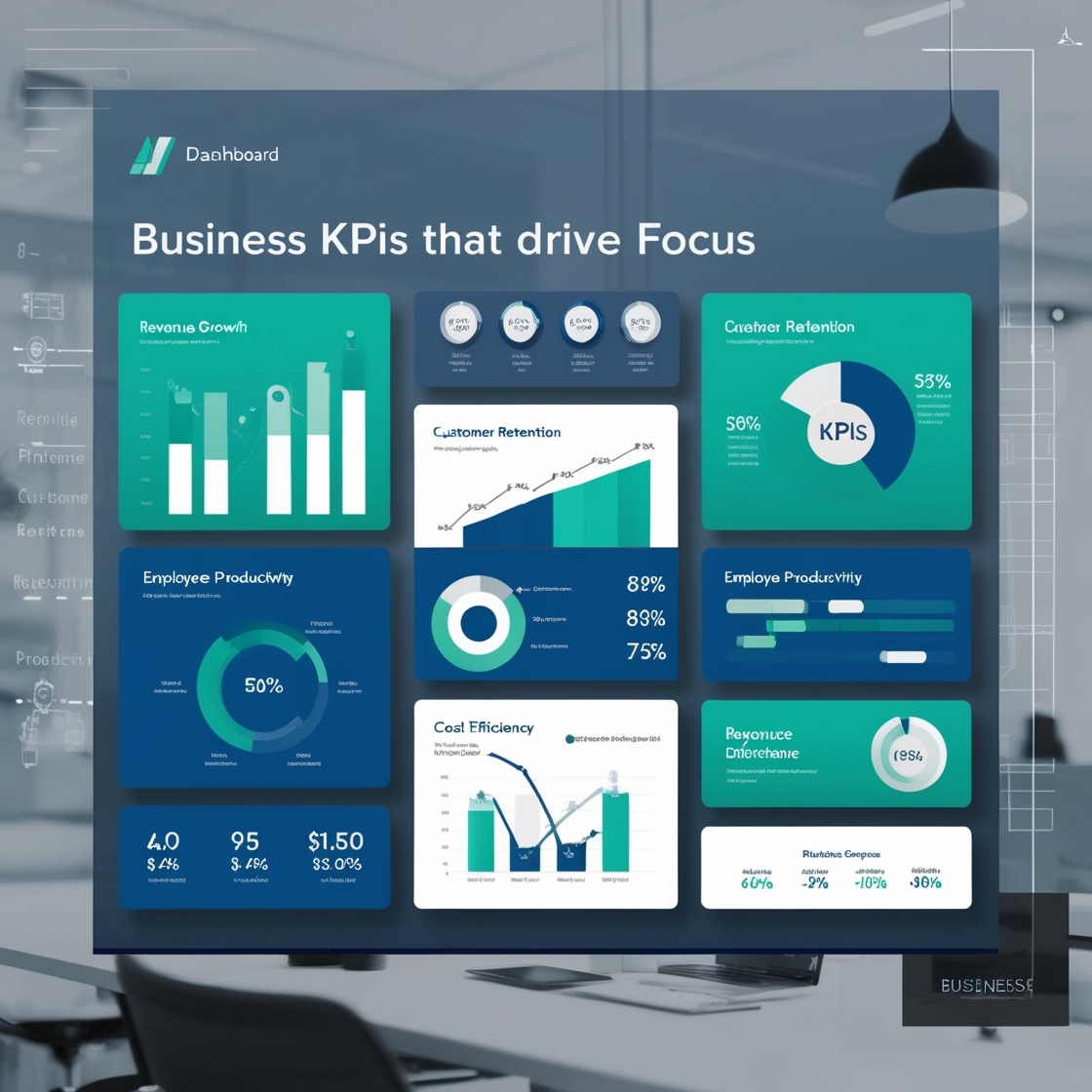Key Takeaways
- Understand the importance of KPIs for tracking business performance.
- Learn about various types of KPIs, including financial, marketing, sales, and more.
- Discover actionable tips for selecting and using KPIs effectively.
Introduction
Key Performance Indicators (KPIs) are vital tools for measuring and managing business performance. They enable organizations to track progress, identify improvement areas, and align strategies with objectives.
What are KPIs?
KPIs are measurable values that indicate how effectively an individual or organization is achieving specific goals. They can be categorized as:
- Leading Indicators: Predict future outcomes and help in proactive decision-making.
- Lagging Indicators: Reflect past performance, providing insights for improvement.
Choosing relevant KPIs tailored to your business goals ensures focused efforts and better outcomes.
Categorizing KPIs
Financial KPIs
- Revenue Growth
- Profit Margin
- Return on Investment (ROI)
- Customer Lifetime Value (CLTV)
- Customer Acquisition Cost (CAC)
- Debt-to-Equity Ratio
- Operating Cash Flow
Marketing KPIs
- Website Traffic
- Conversion Rates
- Customer Engagement (social media, email)
- Brand Awareness
- Marketing Qualified Leads (MQLs)
- Cost per Lead (CPL)
Sales KPIs
- Sales Growth
- Average Order Value (AOV)
- Lead-to-Customer Conversion Rate
- Customer Churn Rate
- Sales Cycle Length
- Number of Sales Calls/Meetings
Customer Service KPIs
- Customer Satisfaction (CSAT)
- Net Promoter Score (NPS)
- Customer Retention Rate
- First Response Time
- Average Resolution Time
Operations KPIs
- Inventory Turnover
- Order Fulfillment Rate
- Production Efficiency
- On-Time Delivery
- Employee Productivity
Human Resources KPIs
- Employee Turnover Rate
- Employee Satisfaction
- Time to Hire
- Training Effectiveness
- Diversity and Inclusion Metrics
Tips for Choosing and Using KPIs
- Align with business goals: Select KPIs that directly measure progress towards your objectives.
- Focus on the most important metrics: Avoid overwhelming yourself with too many KPIs.
- Set SMART goals (Specific, Measurable, Achievable, Relevant, Time-bound).
- Track and analyze data regularly to identify trends and areas for improvement.
- Use data insights to adjust strategies and optimize performance.
Conclusion
KPIs are essential for maintaining focus and achieving business success. By selecting the right KPIs and monitoring them regularly, you can make informed decisions and drive meaningful improvements.


Leave a Reply